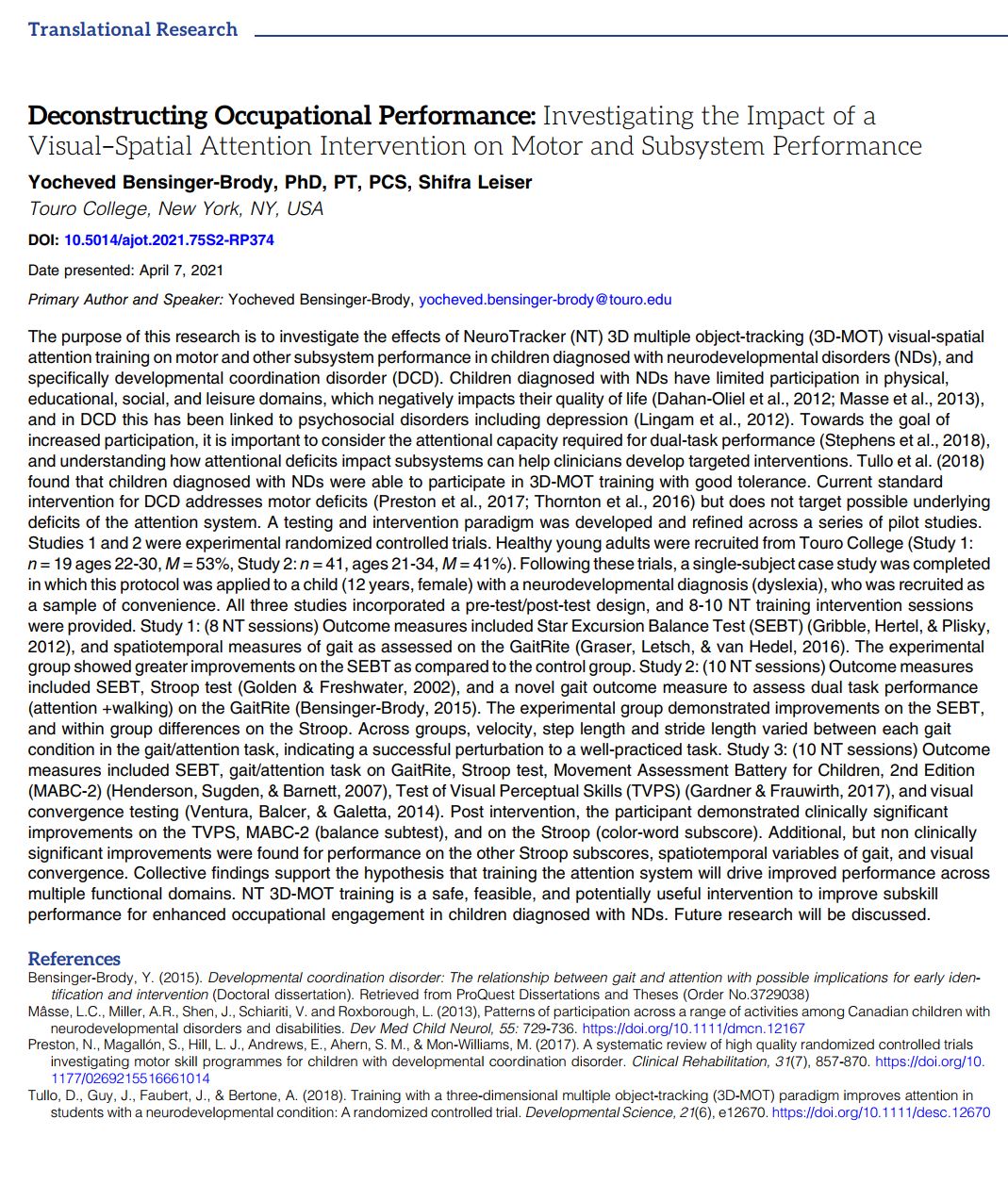Welcome to the Research and Strategy Services at in today's fast-paced.


A concussion is a brain injury that is plagued by so many unknowns and potential problems. Of course there are issues posed by the injury itself. But, there are also still too many problems and barriers that prevent society from dealing with these injuries appropriately.
At the Ultimate Concussion Conference that NeuroTracker recently attended, George Martin, a former NFL New York Giants player, stated that the long-term consequences of concussions are still widely underestimated. Martin was the keynote speaker at the conference which welcomed experts in the brain injury field. He said: “We need to take off the veil. I’ve attended far too many funerals lately for teammates and colleagues who have unfortunately succumbed to CTE.”
Chronic Traumatic Encephalopathy (CTE) is a progressive degenerative disease of the brain. It has been found in athletes and others with a history of repetitive brain trauma, including concussions. It was also featured prominently in Concussion, the 2015 movie starring Will Smith.
While there are lot of potentially dangerous negative implications from suffering a concussion, these can be reduced with early recognition and proper management. So why are there still problems when it comes to dealing with concussions in sports? Find out about the 5 critical concussion problems plaguing the sports world:
When it comes to concussions, there seems to be a lack of communication between coaches of different teams and healthcare providers. When an athlete has a concussion, or a suspected concussion, everyone involved should be made aware. For instance, with student athletes, their parents, coaches, teachers and healthcare providers should be informed.
Being on the same page will provide a more consistent management strategy in post-concussion treatment. Dr. Don Teig, a co-organizer of the conference, mentioned: “I always felt there was a lack of communication between disciplines. A lot of players are thrilled we’re doing this because the subject has been pushed aside and buried.”
It’s 2016 and there’s still not even a consensus in the medical community on what a concussion is. As a spokeswoman for the American Physical Therapy Association mentioned, “No one talks in the medical community about how much we don’t know.”
Concussions cannot yet be seen on an MRI or CT scan and can’t even be diagnosed by a blood test. Medical professionals need a way to confirm when the brain has healed and is ready to return to sport in order to eliminate the “concussion problem.” Relying simply on symptoms is unrealistic. Right now, one of the best methods for dealing with concussions is via baseline testing. The issue with baseline testing, however, is that it requires people to take action before there is a problem in order to get their baseline scores. Regrettably, most people wait until it’s too late to get this done. This is where sports associations can step up and make a difference.
Unfortunately, there’s an extremely high chance that your general practitioner has never learned about concussions. Most people assume that their doctor knows everything, but this is not always the case. A study conducted in 2012 found that concussion was not even on the curriculum of the majority of medical schools in Canada. In addition, recent studies also revealed that the majority of frontline family and ER physicians are very limited when it comes to concussion knowledge. This also includes the application of appropriate management guidelines.
Clearly, a lack of training in healthcare presents a huge problem. Perhaps the biggest of them all! Most sports associations state in their policy (if they have one), that a player needs a doctor’s note to return to play after sustaining a concussion. Concussion recovery is crucial to keeping your brain safe when you return to sport. The last thing you want is back-to-back concussions. The problem is that uneducated healthcare providers present a huge risk to a player’s overall health and well-being.
Proper concussion management and treatment is paramount in ensuring long-term brain health. Some practitioners are starting to use a technological tool for concussion treatment. For them, it’s important to not just ask the athlete how she or she feels but to truly look at the neurological change correlated by numerical change in data.
This is particularly useful for quantifying the intervention and correlating with subjective assessments. Let’s take a proactive approach to trying to solve critical concussion problems in sports!








Welcome to the Research and Strategy Services at in today's fast-paced.

If your thinking feels slower than usual, it doesn’t automatically mean something is wrong. This guide explains common short-term causes, normal cognitive variability, and how to interpret changes calmly over time.

Many professional roles require cognitive performance to be sustained over long periods rather than demonstrated briefly. This article explains how sustained cognitive load shapes performance in knowledge-work and monitoring environments.

An overview of the important interpretational difference between temporary changes in brain state, and durably lasting changes in cognitive capacities.
.png)